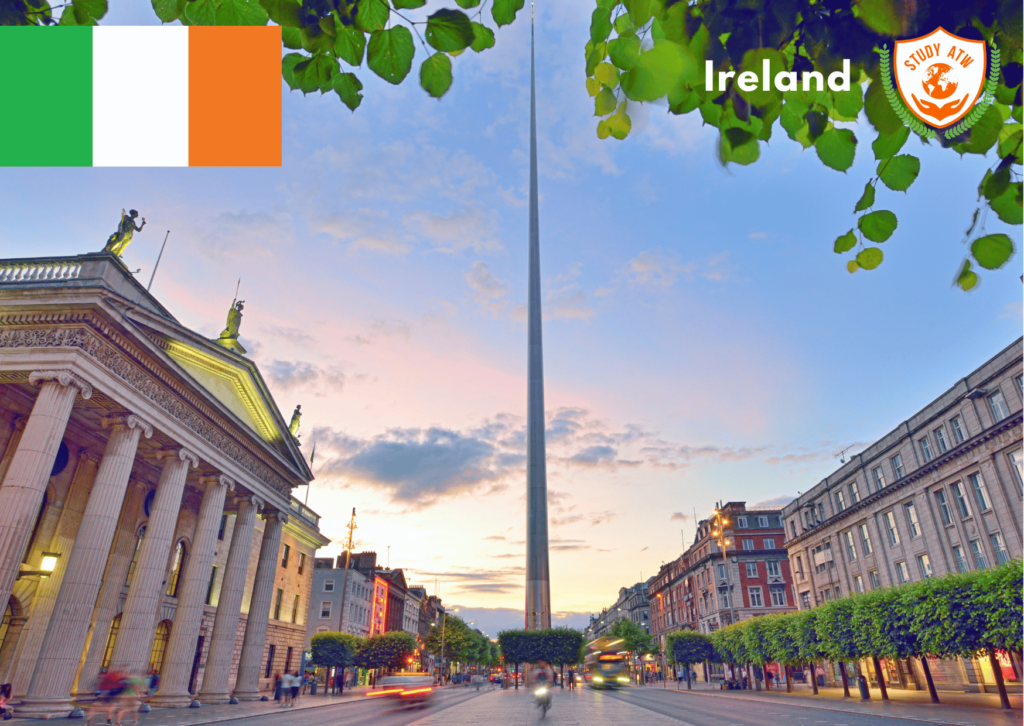Study in USA
About USA
The UNITED STATES OF AMERICA (USA) hosts the most number of international students in the world.
QUALITY EDUCATION, UNIQUE CURRICULUM, MULTICULTURAL ENVIRONMENT, AND ABUNDANT OPPORTUNITIES are just some of the reasons why many students want to study in the USA.
U.S Degrees have an excellent international reputation. While studying here, you will get the opportunity of advanced technology and research.
The USA has more than 5,000 Universities and colleges and houses some of the world’s best educational institutions that are listed high in the QS (Quacqarelli Symonds) world rankings.
The Universities offer a wide range of higher education degrees, promoting research opportunities.
The American Universities are funded by top organizations globally, which has helped revolutionize the country’s education system.
The Excellent academic standards and ever evolving curriculum attract students and help them find exceptional career opportunities wherever they go.
Student Life
1. Campus Community: U.S. campuses often have a vibrant student life with organisations and events. Getting involved can help you make friends and feel more at home.
2. Housing: You might live in a dormitory or off-campus apartment. Dorms can be a good way to meet people, but off-campus living can offer more independence.
3. Cultural Adjustment: There might be cultural differences to navigate, but universities often have resources like international student offices to help with the transition.
4. Social Life: Many students participate in sports or attend social events. College life can be a great opportunity to explore new interests and make lasting connections.
Academic Life
1. Course Structure: Many U.S. universities use a semester or quarter system. You’ll take a mix of required and elective courses, and you may have more flexibility to choose classes that interest you.
2. Class Format: Expect a mix of lectures, discussions, and group projects. Participation and attendance can be important.
3. Assessment: Grades are typically based on a combination of exams, assignments, and participation. There may be mid-term and final exams, along with papers and presentations.
Universities
Arizona State University,
North Texas University,
CSU , Purdue University,
Bridgeport University,
Montana State University,
University Of South Florida,
Rowan University,
Governors State University,
New Heaven University,
University Of Bridgeport,
Saint Louis University,
The University of Arizona,
Washington State University,
University of Alabama,
University of Houston,
Tennessee State University,
Oklahoma State University,
Oregon State University,
University of Texas at Arlington,
University of Cincinnati,
East Tennessee State University,
Westcliff University,
Kent State University to name a few.
Courses in USA
1. Business Management.
2. Medical Science.
3. Engineering.
4. Computer Sciences.
5. Social Science.
6. Fine & Applied Arts.
7. Journalism and Mass Communication.
8. Legal Studies.
Costing
UG: $14000 to $30000 per year (depends on university).
PG: $15000 to $50000 per year (depends on university).

Study in UK
About UK
The United Kingdom is one of the popular destinations among international students. United Kingdom is ranked 8 out of 142 countries.
The UK is filled with high-class institutions and they provide more flexibility in requirements compared to any other country.
The students gain theoretical and practical knowledge which makes them job competent.
Around 450,000 international students visit to study in the UK every year. The number is increasing each year.
Student Life
1. Cultural Diversity: The UK is very multicultural, with students from all over the world. This creates a vibrant and diverse environment on campus.
2. Accommodation: Many universities offer on-campus accommodation, which can be a great way to meet people and get involved in campus life. Off-campus housing is also common, especially in larger cities.
3. Social Life: There’s always something going on, from club activities and societies to social events and cultural festivals. Universities often have various clubs and societies catering to different interests.
4. Weather: The weather in the UK can be quite variable and often rainy, so packing for all seasons is a good idea.
5. Cost of Living: This varies depending on the city. London is notably more expensive, while other cities might be more affordable. Don’t forget to budget for accommodation, food, transport, and leisure activities.
Academic Life
1. Quality Education: The UK is home to some of the world’s top universities. They offer a wide range of courses and have strong research programs.
2. Duration: Undergraduate degrees typically take three years (or four in Scotland), and postgraduate degrees are often one year for a master’s program and three to four years for a PhD.
3. Teaching Style: The approach to teaching can vary between universities, but generally, it includes lectures, seminars, and independent study. Assessments might involve exams, coursework, and projects.
Universities
Kings College London,
Middlesex university,
University of West England,
Bristol,
Cardiff University,
University of Edinburgh,
University of West London,
Chester University,
Durham University
Cardiff University,
London Metropolitan University,
University of Winchester,
Leeds Beckett University,
Durham University,
University of Westminster,
Abertay University,
John Moores University,
University of Bristol,
City University London,
Wrexham University,
Teesside University,
University of Warwick,
Ravensbourne University,
Swansea University,
Kingston University London,
University of Glasgow,
Kingston University,
Aston University to name a few.
Courses in UK
1. Design& Arts
2. Public Relations and Adverting
3. Engineering
4. Information technology
5. Computer Science
6. Medicine
7. Finance, Accounting & Management
8. Law
9. International Business Management
10. Education & Leadership11. Media, Film Producation
Costing
UG: £12000 to £30000 per year (depends on university).
PG: £14000 to £35000 per year (depends on university).
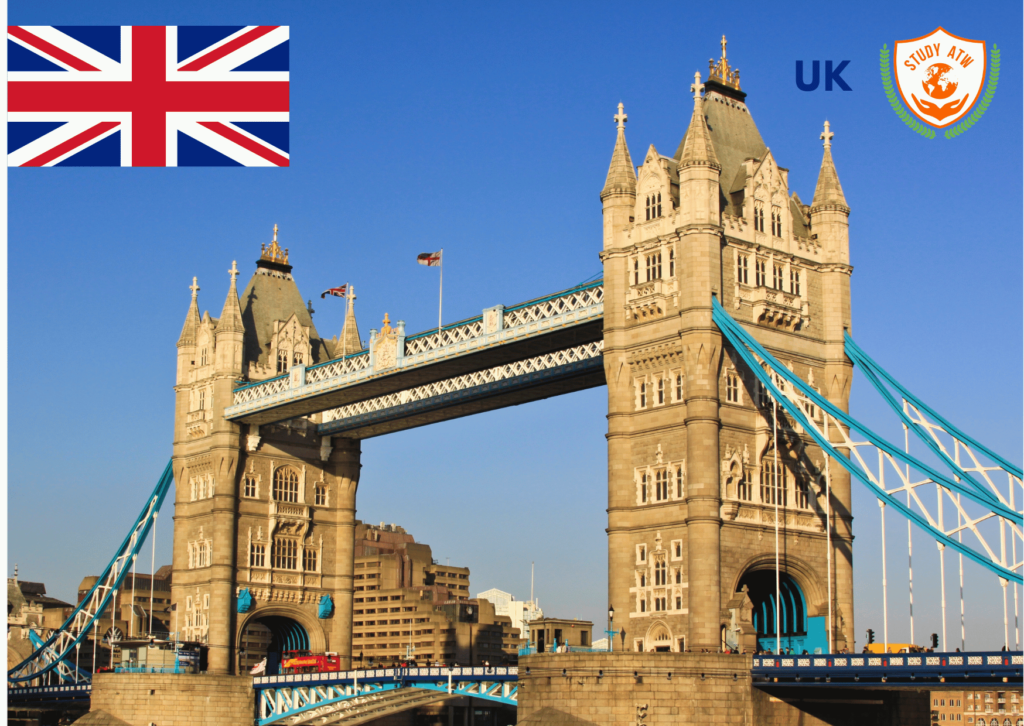
Study in Australia
About Australia
Australia is also a highly sought-after destination for international students, consistently ranking among the top choices globally.
As of recent rankings, Australia is typically positioned within the top 10 countries for international education, reflecting its strong reputation in the field.
The country is renowned for its world-class universities and high educational standards, offering a broad range of programs across various disciplines.
Institutions in Australia are known for their emphasis on practical experience alongside theoretical learning, equipping students with the skills necessary for success in the global job market.
Each year, around 500,000 international students choose to study in Australia, and this number has been steadily growing.
This increase can be attributed to the country’s robust educational system, diverse course options, and supportive student services, making it a popular choice for those seeking a high-quality education abroad.
Student Life
1. Accommodation: Options range from on-campus housing to private rentals. University residences can be a great way to meet other students.
2. Cost of Living: It can vary depending on the city. Major cities like Sydney and Melbourne are generally more expensive than smaller cities.
3. Work Opportunities: International students can work part-time while studying, usually up to 20 hours per week during the semester and full-time during breaks.
Academic Life
1. Universities: Australia is home to several world-renowned universities like the University of Melbourne, University of Sydney, and Australian National University.
2. Courses: Most courses are offered in a variety of fields, and many universities have strong research programs.
3. Teaching Style: Classes often involve lectures, tutorials, and practical sessions. Group work and presentations are common.
Universities
RMIT,
Wollongong University,
Deakin University,
Latrobe University,
Griffith University,
Monash university,
University of Melbourne,
University of Sydney,
University of South Australia,
University of Adelaide to name a few.
Courses in Australia
1. Data Science and Analytics
2. Cybersecurity
3. Renewable Energy and Sustainability
4. Healthcare and Nursing
5. Artificial Intelligence and Robotics
6. Digital Marketing and E-Commerce
7. Engineering (Civil, Mechanical, Software)
8. Finance and Financial Planning
9. Psychology and Mental Health
10. Information Technology (IT)
Costing
UG: A$ 30,000 to A$ 50,000 per year (depends on university).
PG: A$ 35,000 to A$ 60,000 per year (depends on university).
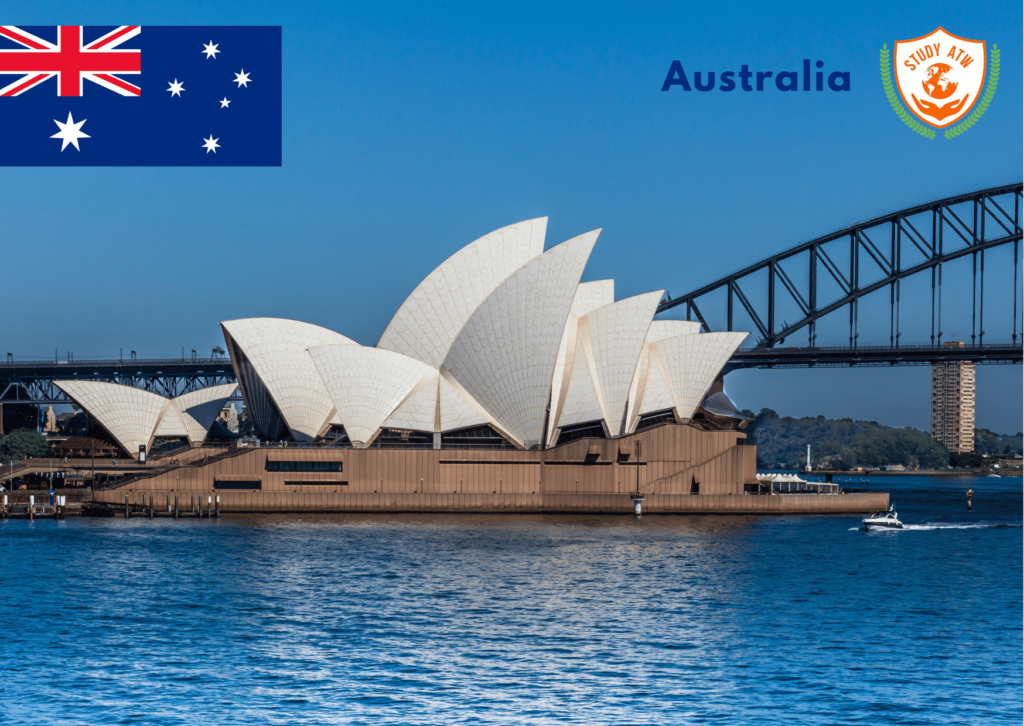
Study in Canada
About Canada
Canada is one of the leading destinations for international students, renowned for its high-quality education system and diverse, inclusive environment.
It is consistently ranked among the top countries globally for higher education, often appearing in the top 10. Canadian universities and colleges are known for their strong academic programs and research opportunities.
International students are drawn to Canada for its welcoming atmosphere, safety, and the chance to experience a multicultural society.
The country’s education system emphasizes both theoretical knowledge and practical skills, preparing students for a global workforce.
In recent years, Canada has seen a steady increase in the number of international students, with around 600,000 students coming to study each year.
This growth is supported by Canada’s variety of programs and pathways for permanent residency, adding to its attractiveness.
Student Life
1. Cultural Diversity: Canada is known for its multiculturalism, and you’ll likely find a diverse student body. This can provide a rich cultural experience and opportunities to make friends from different backgrounds.
2. Campus Activities: Most campuses have a variety of clubs, sports, and activities. Joining these can be a great way to meet people and get involved in the community.
3. Support Services: Many institutions offer support services like academic advising, career counselling, and mental health resources to help students succeed both academically and personally.
Academic Life
1. Diverse Programs: Canadian universities and colleges offer a wide range of programs. Whether you’re interested in arts, science, business, or technology, there’s likely a program for you.
2. High Quality: Canadian institutions are known for their high academic standards and research opportunities. Degrees from Canadian universities are recognized worldwide.
Universities
Cape Breton University,
University of Regina,
York University,
McGill University,
McMaster University,
Royal Roads University,
University of Canada West,
Nipissing University,
Vancouver Film School,
Vancouver Island University,
University of Windsor,
University of Victoria,
Thomson River University,
Lakehead University,
Concordia University of Edmonton,
University of Saskatchewan ,
University of Canada West, to name a few.
Courses in Canada
1. Data Science and Analytics
2. Cybersecurity
3. Artificial Intelligence and Machine Learning
4. Healthcare and Nursing
5. Renewable Energy and Environmental Science
6. Digital Marketing and E-Commerce
7. Software Development and Engineering
8. Business Administration and Management
9. Financial Technology (FinTech)
10. Supply Chain Management and Logistics
Costing
UG: C$ 22000 to C$ 60,000 per year (depends on university).
PG: C$ 22,000 to C$ 60,000 per year (depends on university).
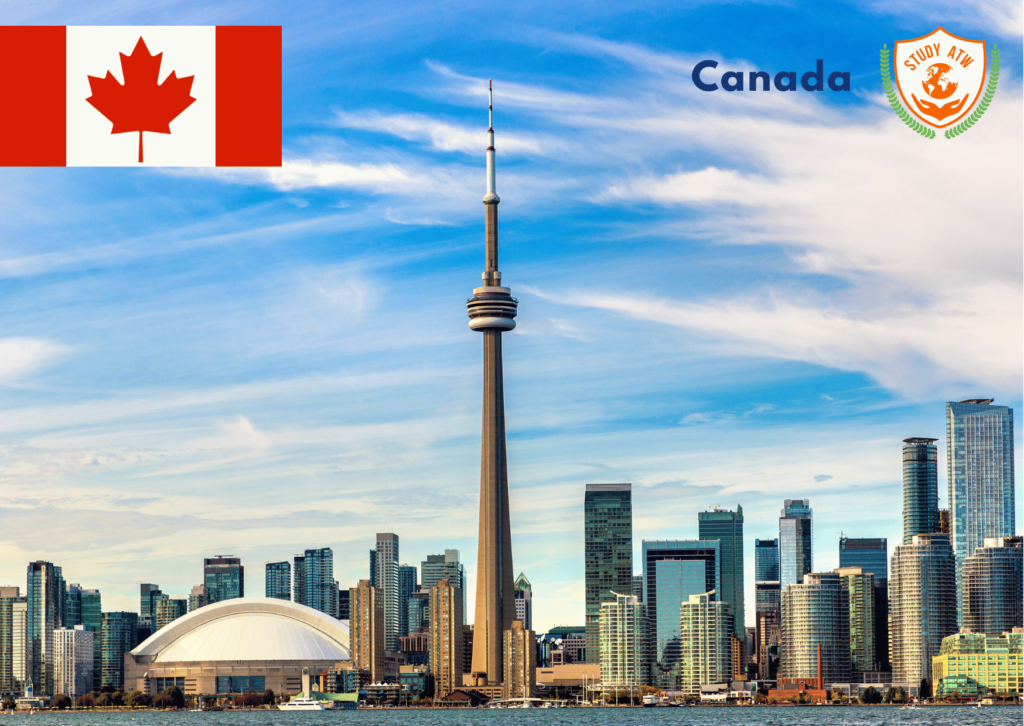
Study in New Zealand
About New Zealand
New Zealand is a compact country and highly responsive to the changing needs of global communities and international business. We are keen observers of emerging trends and are inclined to adopt new technologies early and successfully. In the 1980s, for example, New Zealand was the first country in the world to trial electronic payment systems (EFTPOS).
Young and free of constricting traditions, New Zealand has learned to be self-reliant and to forge its own way in the world. New Zealand’s youth and fresh outlook make it the natural home for fresh ideas. This innovative thinking is reflected in the way we teach and learn.
New Zealand’s education system is based on the prestigious British system. We offer world-class facilities, resources and teaching staff, and our qualifications are valued and transferable throughout the world.
Student Life
1. Cultural Diversity: New Zealand is culturally diverse, and you’ll likely meet students from around the world.
2. Activities: There are plenty of extracurricular activities, from sports and outdoor adventures to cultural events and student clubs.
3. Accommodation: Options include university dorms, shared apartments, or private rentals. Many students opt for homestays to immerse themselves more in the local culture.
4. Work Opportunities: International students can work part-time during the school year and full-time during breaks, which can help with living expenses and provide valuable work experience.
Academic Life
1. Institutions: New Zealand has several world-renowned institutions, including the University of Auckland, University of Otago, and Victoria University of Wellington.
2. Programs: You can find a range of programs from undergraduate to postgraduate, across various fields.
3. Teaching Style: The education system often emphasizes practical learning and critical thinking. Smaller class sizes can mean more personalized attention.
Universities
AUT
Weltec
Whitireia
SIT
ARA
EIT
NMIT
PIHMS
Massey University
Otago Polytechnic
University of Waikato
University of Auckland
EIT
University of Canterbury, to name a few.
Courses in New Zealand
1. Data Science and Analytics
2. Cybersecurity
3. Artificial Intelligence and Machine Learning
4. Healthcare and Nursing
5. Renewable Energy and Environmental Sustainability
6. Digital Marketing and E-Commerce
7. Software Development and Engineering
8. Business and Management
9. Engineering (Civil, Mechanical, Electrical)
10. Tourism and Hospitality Management
Costing
UG: NZ$ 22000 to NZ$ 40000 per year (depends on university).
PG: NZ$ 22000 to NZ$ 40000 per year (depends on university).
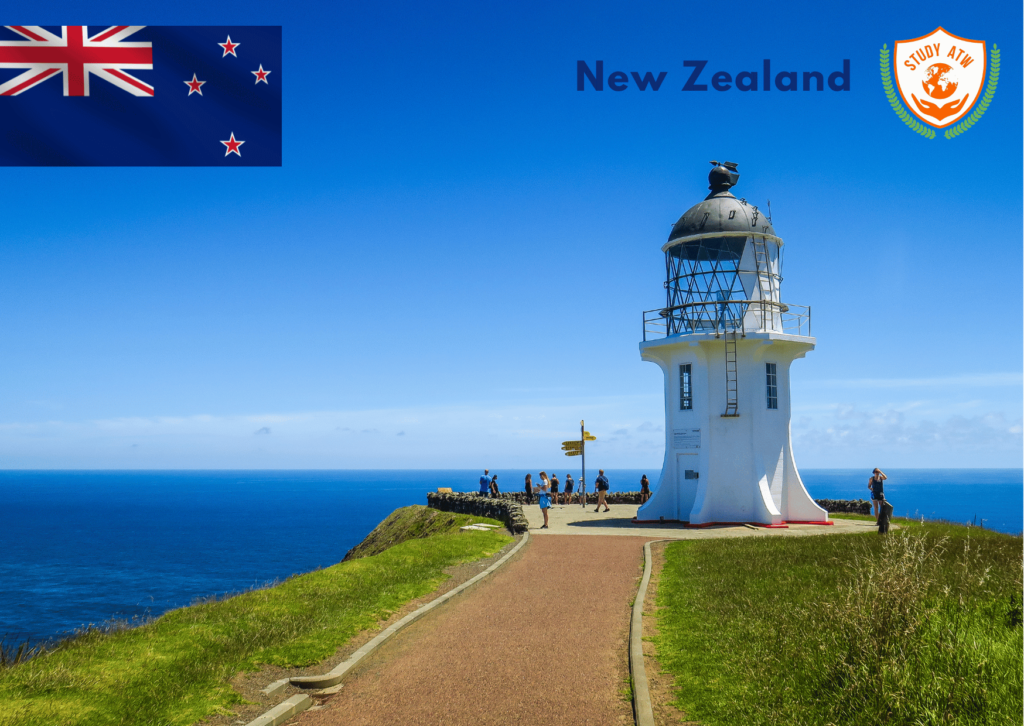
Study in Ireland
About Ireland
The Republic of Ireland is the second-largest island in the British Isles located in Northwest Europe and third largest in Europe.
It is separated from the United Kingdom by the North Channel to the east.
Irish culture has had strong influence over other cultures, particularly in literature, music, the language, and Gaelic games.
The Irish culture shares close similarities with the UK in terms of the English language and sports like football, rugby, golf, and horse racing. Also, the country is commonly known as the Emerald Isle, due to the green colour of its beautiful landscapes, rolling hills and valleys. Ireland is a beautiful Island, combining contemporary modern cities with an unspoilt country side, cityscapes steeped in history and a rich natural habitat.
Ireland is situated in the Northwest of Europe and separated from the United Kingdom by the Irish Sea and the North Channel. To the west of the island is the Northern Atlantic Ocean, and to the South is the Celtic Sea.
Ireland has total land area of 84,421 square kilometres of which the Republic of Ireland is 83%, and the rest in Northern Ireland. it is the 20th biggest island in the world. Ireland experiences an oceanic climate which is mild with a few extremities.
Due to frequent rainfall and mild climate on the island, Ireland has extremely lush vegetation. Winters are from December to February, winters are cold but not freezing, with frequent rain and cloudy skies.
The minimum temperature in inland areas averages between 7-8 ºC in Spring from March to May is cold but becomes milder once it reaches May.
It is the sunniest time of the year and the least rainy period. Summers from June to August, the temperatures are cool, with daily averages around 17-20 º c in Autumn from September to November is cloudy, rainy, and windy, with very little sunshine. Ireland is known to have 50% world’s leading financial services firms and leading MNCs, Global ICT, pharmaceutical, gaming companies such as Google, Medtronic and Microsoft.
Student Life
1. Social Scene: Ireland has a vibrant social life with plenty of restaurants and cultural events. Cities like Dublin, Cork, and Galway have lively student communities.
2. Clubs and Societies: There are numerous student clubs and societies, from sports to arts, offering opportunities to meet new people and pursue interests.
3. Accommodation: Options range from university residences to private rentals. Many students choose shared apartments or houses.
4. Cost of Living: This can be high, especially in cities like Dublin.
Academic Life
1. Reputation: Ireland has several world-renowned institutions, such as Trinity College Dublin, University College Dublin, and University College Cork.
2. Programs: They offer a wide range of programs across various fields. Courses often emphasize research and critical thinking.
3. Language: Courses are typically taught in English, although Irish (Gaeilge) is also an important part of the culture.
Universities
National College of Ireland,
Calow,
Galway Business School,
Griffith College,
University of Limerick,
Trinity College,
Dublin,
Cork Institute of Technology, etc.
Courses in Ireland
1. Data Science and Analytics
2. Renewable Energy and Environmental Science
Cybersecurity
3. Tourism and Hospitality Management
4. Sustainable Development
5. Software Engineering and Development
6. Healthcare and Nursing
7. Engineering (Civil, Mechanical)
8. Marine and Arctic Studies
9. Business Administration and Management
Costing
UG:€8000 to €14000 for College and €10000 to €18000 for University per year (depends on university).
PG:€ 14000 to € 25000 per year (depends on university).
